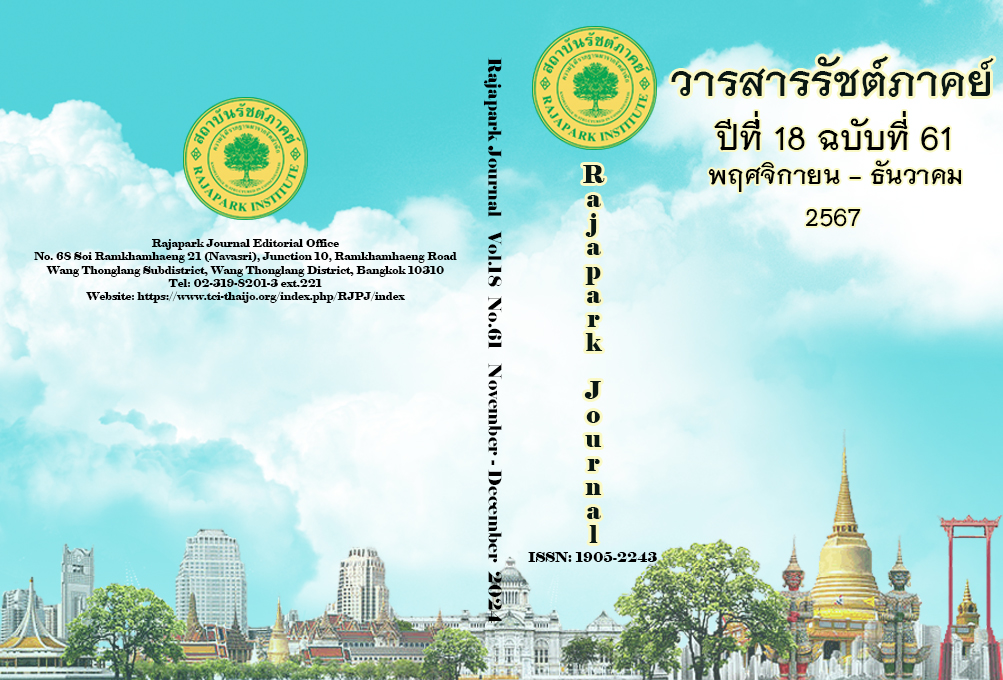การพัฒนาผลิตภัณฑ์เซรั่มจากสารสกัดครามและวิเคราะห์ต้นทุนเชิงพาณิชย์ กลุ่มวิสาหกิจชุมชนแสงจันทร์สมุนไพรเกษตรแปรรูปอินทรีย์ จังหวัดสกลนคร
Main Article Content
บทคัดย่อ
จังหวัดสกลนคร มีชื่อเสียงเกี่ยวกับผ้าย้อมคราม เพื่อเพิ่มมูลค่าคราม ทีมวิจัยจึงสนใจพัฒนาผลิตภัณฑ์จากสารสกัดใบคราม โดยกระบวนการวิจัยเชิงคุณภาพ วิธีวิจัยการปฏิบัติการแบบมีส่วนร่วม (PAR) ใช้การเลือกกลุ่มตัวอย่างแบบเจาะจงจากสมาชิกวิสาหกิจชุมชนแสงจันทร์สมุนไพรเกษตรแปรรูปอินทรีย์ จังหวัดสกลนคร จำนวน 30 คน เครื่องมือที่ใช้ในการวิจัยการสัมภาษณ์กลุ่ม สัมภาษณ์เชิงลึก การสังเกต วิเคราะห์ข้อมูลเชิงเนื้อหา ผลการวิจัย พบว่า สารสกัดครามที่ได้จากใบครามฝักงอสดสกัดด้วยเทคโนโลยีแบบมาเซอร์เรชั่น สามารถยับยั้งเชื้อ Propionibacterium acnes สอดคล้องกับยุทธศาสตร์จังหวัดสกลนครเมืองสมุนไพร พัฒนายกระดับมูลค่าเศรษฐกิจด้วยการพัฒนาวิสาหกิจชุมชนให้เกิดรายได้ สร้างอาชีพ และจากความต้องการของกลุ่มฯ ด้วยการประชุมแบบมีส่วนร่วมจึงได้วางแผนพัฒนาผลิตภัณฑ์จากสารสกัดใบครามเป็นผลิตภัณฑ์นวัตกรรมระดับวิสาหกิจชุมชน “เซรั่มคราม” บำรุงผิวหน้า ส่วนผสม 11 รายการ ประกอบด้วย น้ำ 14,800 กรัม ไฮดรอกซี่ 1,000 กรัม โพรพิลีน ไกลคอล 1,000 กรัม สารสกัดใบคราม 600 กรัม สารสกัดว่านหางจระเข้ 600 กรัม สารสกัดแตงกวา 700 กรัม สารสกัดข้าว 300 กรัม สารสกัดดอกบัวหลวง 300 กรัม สารสกัดกวาวเครือขาว 300 กรัมสารสกัดแครอท 300 กรัม ไมโครแคร์ PHC 100 กรัม. ผ่านการรับรองจากคณะกรรมการอาหารและยา เลขที่จดแจ้ง 32-1-6600013661. ผลการวิเคราะห์ต้นทุนแบบง่ายต่อหน่วย คำนวณได้เซรั่ม ขวดละ 168 บาท บวกกำไรที่ต้องการ คิดเป็นร้อยละ 48.81 กำหนดราคาขายส่งที่เหมาะสม 250 บาทและราคาขายปลีกที่เหมาะสม 299 บาท จำหน่ายในช่องทางออฟไลน์งานแสดงสินค้าโอท๊อป ร้านแสงจันทร์โอสภ ช่องทางออนไลน์ เฟสบุ๊ค Seangchan Pharmacy
Article Details

อนุญาตภายใต้เงื่อนไข Creative Commons Attribution-NonCommercial-NoDerivatives 4.0 International License.
ทัศนะและความคิดเห็นที่ปรากฏในวารสาร ถือเป็นความรับผิดชอบของผู้เขียนบทความนั้น และไม่ถือเป็นทัศนะและความรับผิดชอบของกองบรรณาธิการ
เอกสารอ้างอิง
Ansoff, I. (1957). Strategies for diversification. Harvard Business Review, 35(5), 113-124.
Braunstein, G. (2020). Promoting sustainable market development – A case study of wooden multi-story buildings[Master’s thesis, Swedish University of Agricultural Sciences]. https://isotimber.se/pdfs/braunstein_g_201113.pdf
Bunpeetikul, P., Khamthong, N., & Moungjaroen, J. (2024). Development of cream for skin treatment product containing cannabidiol from hemp leave in D-PHASE form. In 28th National Graduate Conference, 17-18 May 2024, Bangkok, Thailand (Online Conference). (Article No. 27, pp. 1-11).
Chomphunuch, S., Saesuwan, T., Suanmadee, S., & Bodeerat, C. (2022). Context of the national economic and social development plan no.13 with local government organizations. Journal of Roi Kaensarn Academi, 7(3), 409-424. https://so02.tci-thaijo.org/index.php/ JRKSA/article/view/252861
Cruawong, P. (2017). Absorption costing Vs. variable costing: The concept and the difference. In Proceedings of the 4th National Academic Conference (pp. 184-188). Kamphaeng Phet Rajabhat University, Thailand.
Dongsawan, A., Phankhat, T., Chaisrisoponkij, R., Chantaramongkol, C., Yingyongnarongkul, B., & Phankhat, O. (2023). Soybean meal extraction for use in cosmetics and skincare product. Journal of Science & Science Education, 6(1), 1-9. https://so04.tci-thaijo.org/index.php/JSSE/article/view/260380
Food and Drug Administration, Ministry of Public Health. (2021). Cosmetics advertising guide. https://drive.google.com/file/d/1WWCBfHuAa4hVJmKHX0yqmjZyhwV24Ywc/view
Jaiuea, C., & Mangsiri. N. (2024). The potential development of the community business sustainable of Namuensri community, Nayong, Trang. Thai Interdisciplinary and Sustainability Review, 13(1), 162–171. https://so03.tci-thaijo.org/index.php/JIRGS/article/view/275490
Jantarothai, N. (2024). Design and Development of Products from Water Hyacinth in Bang Len Community, Bang Yai District, Nonthaburi Province. Rajabhat Rambhai Barni Research Journal, 18(1), 148-158. https://so05.tci-thaijo.org/index.php/RRBR/article/view/272080
Khaisang, S., & Nonthanathorn, P. (2023). Product attributes of cannabis-infused body care product selected by consumers in Bangkok Metropolitan. Journal of the Association of Researchers, 28(3), 149-168. https://so04.tci-thaijo.org/index.php/jar/article/view/265686
Overseas Trade Promotion Office. (2020). Natural cosmetics market report. Kingdom of the Netherlands.
Pinsawat. T. P., (2024). Sufficiency economy philosophy and development. Journal of MCU Ubon Review, 9(1), 1741-1754. https://so06.tci-thaijo.org/index.php/mcjou/article/view/270436
Saeou, A., & Chotpool, K. (2024). Development of Herbal Scrub with Coffee Grounds for Ladies and Postpartum Mothers. Science and Technology Nakhon Sawan Rujabhat University Journal, 16(23), 87-99. https://ph02.tci-thaijo.org/index.php/JSTNSRU/article/view/251246
Sakayawong, N., & Yatchimplee, A. (2018). Petty Patent No. 16673 ASP/200-K. Department of Intellectual Property.
Samlee, O., Sregarn, K., Romyen, J. (2021). Cost analysis of new community products in Chawang District, Nakhon Si Thammarat Province. Princess of Naradhiwas University Journal of Humanities and Social Sciences, 9(2), 57-77. https://so05.tci-thaijo.org/index.php/pnuhuso/article/view/255041
Satsue, S., Suksai, W., & Thapphasaraphong, S. (2023). Biological activities of extract from Watermelon rind Citrullus Lanatus (Thunb.) Matsum and Nakai. The Journal of Chulabhorn Royal Academy, 5(3), 113-121. https://he02.tci-thaijo.org/index.php/jcra/article/view/256307
Shannaq, B., Saleem, I., & Shakir, M. (2024). Maximizing Market Impact: An In-Depth Analysis of the Market Penetration Strategy and Its Effective Tools for Sales Growth and Brand Expansion in the E-commerce Markets of Oman and Bahrain. In The AI Revolution: Driving
Business Innovation and Research: Volume 1 (pp. 277-291). Cham: Springer Nature Switzerland. https://link.springer.com/chapter/10.1007/978-3-031-54379-1_25
Srichan, T., & Kosolkittiamporn, S. (2023). 20 years of national strategy for the development of Thailand. Journal of Modern Learning Development, 8(1), 413-435. https://so06.tci-thaijo.org/index.php/jomld/article/view/258310
Sriwirot, S., & Lusawat, L. (2016). Thai SMEs and risk of cost in the ASEAN Free Trade Area (AFTA). EAU Heritage Journal Social Sciences and Humanities, 6(1), 1-20. https://heritage.eau.ac.th/soc_journal/PDF/HeritageJournal/Heritage-10-01-59-Social_new.pdf
Sutcharitpan, P., Chirinang, P., Chandarasorn, V., & Katekao, V. (2024). The green economy and sustainable local development strategies. Journal of Roi Kaensarn Academi, 9(1), 627-642. https://so02.tci-thaijo.org/index.php/JRKSA/article/view/265231/179044
Thaithong, K., & Saenbundidrinta, S. (2024). Development of an entrepreneurial model for producing herbal cosmetics according to BCG: a case study of Sakon Nakhon Province. Journal of Health Consumer Protection, 4(1), 115-133. https://he02.tci-thaijo.org/index.php/JOHCP/article/view/267006
Thongjun, C. (2024). Development of skin scrubs and skin lotion with turmeric, Tham Thong Lang, Thap Put District, Phang Nga Province. Journal of Local Development Phangnga Community College, 1(1), 63-73. https://so17.tci-thaijo.org/index.php/pngcc/article/view/242
Tashyan, M. S., & Suvaryan, S. R. (2023). The use of matrices in service marketing research. Proceedings of the YSU C: Geological and Geographical Sciences, 57(1-2(260)), 68-76. https://doi.org/10.46991/PYSU:C/2023.57.1-2.068
Thakong, S., Kesornbua, S., & Phensaijai, M. (2022). Production of body lotion from star fruit beer. Huachiew Chalermprakiet Science and Technology Journal, 8(1), 92-101. https://ph02.tci-thaijo.org/index.php/scihcu/article/view/246438
Uejirapongphan, S. (2009). Management accounting. McGraw-Hill.
Wivatanasak, T., Prakthayanon, S., & Rujithamrongkul, K. (2024). The purchasing behavior of vitamin C serum products for skin care of adolescent consumers in Thailand. Journal of MCU Nakhondhat, 11(5), 118-127. https://so03.tci-thaijo.org/index.php/JMND/article/view/276746
Wongwises, N., Khamthong N., & Moungjaroen, J. (2024). Development of skincare product with cannabis extract (Cannabis Sativa L.SUBSP. Sativa) in alpha-gel form. In 28th National Graduate Conference, 17-18 May 2024, Bangkok, Thailand (Online Conference).
(Article No. 29, pp. 1-11).
Woradong, K. (2018). Plant Genetic Conservation Project under the Royal Initiative of Her Royal Highness Princess Maha Chakri Sirindhorn: Activities on the use of indigo leaves to make clear water products to prevent germs. Propionibacterium Acnes. Sakon Nakhon: Sakon Nakhon Rajabhat University.
Yucharoen, R., Buncharoen P., & Srisuksomwong, P. (2023). Development of nourishing skin cream containing Siw Gliang Rice extract. YRU Journal of Science and Technology, 8(3), 40-48.


